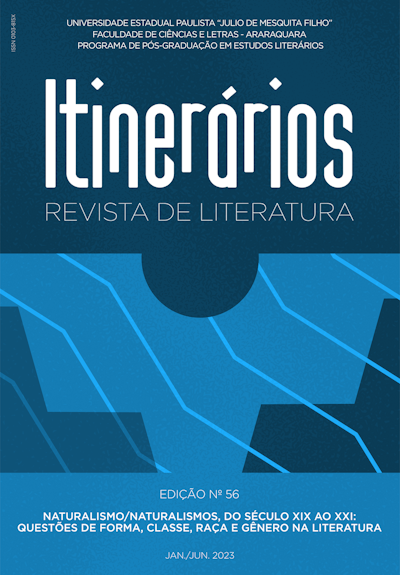Two critics of Japanese Naturalism and their critics’ readings
Natsume Sōseki, Mori Ōgai and one version of shishōsetsu
DOI:
https://doi.org/10.58943/irl.v1i56.17639Keywords:
Natsume Sōseki, Mori Ōgai, Kokoro, Vita Sexualis, Japanese NaturalismAbstract
The article has two fronts: first, I reread arguments from critics related to Psychoanalysis and Aesthetics, focused on eroticism, in Natsume Sōseki’s Kokoro. Exploring the arguments, I try to observe how the literary text is read as transparent, a testimony to obtain a medical report for Sensei and Watakushi, and what are the aporias that give literature enough strength to support such, without considering the fictionalization of reality as already mediated. To refine the arguments considered closured, around the construction of homosexual and heterosexual figures in Kokoro, the second movement brings, to comparison, Vita Sexualis, by Mori Ōgai, and its tensions with Naturalist aesthetic. It is intended, through the exposition, to demonstrate how the Romance of the Self (shishōsetsu) was read in parallax and, throughout the attempt to nuance it, I try to demonstrate that the arguments can only be taken to the last consequences if literary criticism is inserted as responsible for the translation of desire as transparent, to the point that psychoanalytic definitions propose a report to the characters, and how shishōsetsu itself becomes recognized as the primacy of self-centered (and autobiographical) narratives. The tensions are observed to justify such gesture as epistemic violence, given that, in the argumentative construction, what is ignored is the already critical relationship of the selected Japanese authors with Naturalism, trying, at the conclusion, to find other possibilities of analysing the same problems of the selected critics (that is, agreeing with the analysis of desire and homoeroticism) and the observable of it, bearing in mind the aporia of the repressive situation at the time.
Downloads
Published
Issue
Section
License
Os manuscritos aceitos e publicados são de propriedade da revista Itinerários. É vedada a submissão integral ou parcial do manuscrito a qualquer outro periódico. A responsabilidade do conteúdo dos artigos é exclusiva dos autores. É vedada a tradução para outro idioma sem a autorização escrita do Editor ouvida a Comissão Editorial.

